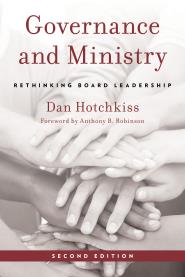
by Dan Hotchkiss
Congregations don’t take sides in elections, but they can never be neutral about moral issues. Especially in times of sharp disagreement, clergy and lay leaders face a hard dilemma: How can we speak politically with a religious voice?
One option is to be silent. During the years when lynchings happened daily in America, most churches, North and South, said not a word about it. When the United States closed its doors to refugees from Nazi Germany, most religious leaders lent their voices to the cause of peace—until war came. Then they focused on supporting the war effort.
Religious institutions generally align with power. Most of the exceptions have been groups rooted in communities of marginalized people. Some African American churches—but by no means all—stood strong for civil rights. American Jewish organizations worked to rescue Jews and other refugees, especially after the U.S. entered the war in 1941.
Occasionally, religious groups stand up to violence and injustice when no direct self-interest is at stake. Sometimes religious people and their institutions even stand up early, before the full scope of a catastrophe becomes apparent. Some traditions specialize in this—the Quakers come to mind—but it can happen anywhere. Shrewd leaders choose their opportunities with care, keep their hearts open to those with different viewpoints, and root their speech in clear religious motivations.
Ways of speaking
Before and since the election last November, I have seen clergy and congregations handle this dilemma in various ways. At one church with a tradition of strong pulpit advocacy, a pre-election sermon compared some of Donald Trump’s words with the words of Jesus. Draw your own conclusion! Several synagogues and churches tried to help their members deal with politics-related tensions at Thanksgiving, focusing on family discomfort as one consequence of the election. Many congregations tacitly or openly supported members who participated in the post-Inauguration protests, and especially the Women’s Marches.
A few pulpits celebrated Trump’s election as almost a Second Coming; but for many evangelicals—especially pastors—“America first” veers too close to idolatry for comfort. Their challenge is especially hard: how can a pastor speak a word of caution to a congregation that just won? Liberal clergy having a hard time sympathizing might try to imagine preaching in, say, 2012 about Obama’s use of drones.
An alternative approach is to highlight many voices, rather than just one. In January, my own minister asked us to write letters to President Trump and share them with her for a sermon. This “Letters to the President” idea was one way to express strong, faith-based convictions about public events without taking inappropriate political positions or inflaming differences within the congregation.
The freer people are to choose a congregation—or no congregation—the more they seem to sort themselves by lifestyle, education, economics, and political opinion. The more politically aligned a congregation is, the more challenging it is for preachers to distinguish faith from politics. Are we Democrats (or Republicans) because we’re Christians (or Jews), or is it the other way around?
This present moment of political division requires clergy to think hard about what part of their political convictions stems from the shared faith of the congregation. There is little warrant for preaching personal political opinion from the pulpit, but there can be no excuse for failing to preach convictions—political or not—that rise from the authentic well of faith.
Neutrality has no excuse
The First Amendment requires government to be neutral about religion, but it does not require religious congregations to be neutral about politics. In fact, the First Amendment guarantees “free exercise of religion,” including institutional expressions of religious views on public issues. Religious people, as the Framers knew, have always held faith-based convictions about politics.
Congregations don’t take sides in elections—at least not those that care about their U.S. tax exemption. This rule, added to the Tax Code in 1954, applies only to election campaigns. It does not prohibit advocating for or against legislation, executive orders, Senate confirmations, or referenda. It allows non-partisan voter education, registration, and get-out-the-vote drives. Clergy and lay leaders can run for office and participate in campaigns, so long as they do not use congregational resources or speak for the institution.
I wonder how long this prohibition will persist. Mr. Trump has promised to undo it legislatively. The Supreme Court, in its Citizens United decision, has accorded free-speech rights to corporations, labor unions, and 501(c)4 organizations. So long as this decision stands, it’s hard to see how the courts can fail eventually to do the same for 501(c)3 charities, including congregations. If that happens, it will become even more important for religious leaders to have principles of our own to help us to decide how and when to speak in public.
Whatever happens, the age-old dilemma facing leaders of religious institutions will remain what it has always been: how to speak politically with a religious voice. November’s election has already produced consequences that offend some of the deepest values of our faith traditions: compassion, hospitality, fairness, generosity, and mutual respect. History suggests most clergy and congregations will stay silent, but a few will speak. It matters a great deal how many leaders of communities of faith will find a voice that speaks with clarity and power.
Congregations don’t take sides in elections, but they never can be neutral about moral issues. And moral issues, ultimately, are what elections are about.
[box] Dan Hotchkiss consults with congregations and other mission-driven groups from his home near Boston. He is the author of the best-selling Alban book Governance and Ministry: Rethinking Board Leadership, which has helped hundreds of churches, synagogues, and non-profit organizations to streamline their structure and become more mission-focused and effective.[/box]
Dan Hotchkiss consults with congregations and other mission-driven groups from his home near Boston. He is the author of the best-selling Alban book Governance and Ministry: Rethinking Board Leadership, which has helped hundreds of churches, synagogues, and non-profit organizations to streamline their structure and become more mission-focused and effective.[/box]
